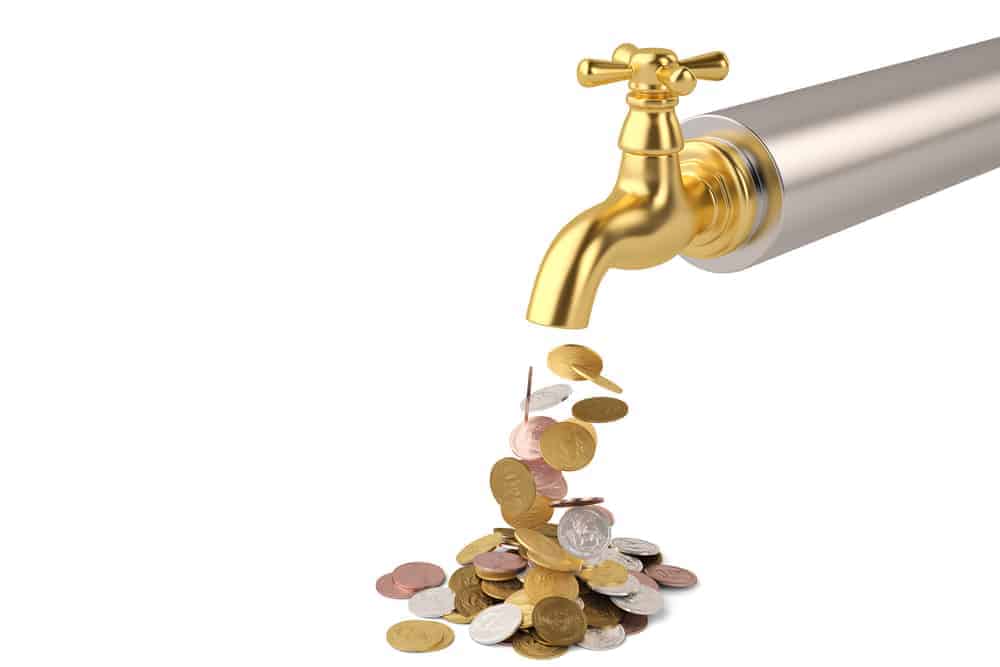Are you curious about the average cost to replace a water heater replacement? You’ve come to the right place for the answers you need.
Water heaters are necessary for our health and comfort, but a big concern for many homeowners is the expense. No wonder we get questions about the average cost to replace a water heater. Just like any other home appliance, they wear out over time.
These days, we truly can’t live without hot water. It helps us clean our clothes, our dishes, our homes, and ourselves. Without hot water, we risk issues from bacteria, viruses, and more. Not to mention how unpleasant cold baths and showers would be.
One of the big concerns when it comes to our water heaters is the cost associated with repairs should they become necessary. And what if the entire system needs replacing? Before you panic, let’s take a look at how they work, what can go wrong, and the reality of the cost of water heater replacement.
How a Water Heater Works
If you’re like most people, you give very little thought to your hot water heater. You turn on the tap, and hot water comes out. That is, until it doesn’t. That’s when we wonder about this miraculous appliance and how it works.
Let’s take a look.
- The primary part of your traditional water heater is the tank. This is what holds the water as it’s heated and then sent to the faucets in your home. Most tank systems hold an average of 40-60 gallons of water at a time.
- There is a pipe on top of the tank that funnels water into the hot water heater. This pipe is called the dip tube. Water flows from the dip tube to the bottom of the tank. This is where the heating element does its work.
- The heating element in an electric system or a burner in a gas water heater is what heats the water in the tank. The thermostat controls these components.
- The thermostat monitors the temperature of the water in the tank. When the temperature of the water drops below the setting on the thermostat, the thermostat tells the heating element or burner to kick on and heat the water.
- When the water is hot, and you turn on your faucet, that hot water comes through the heat-out pipe to your pipes and through your home to your faucet.

In addition to the primary controls, there are some safety features in place on every hot water heater.
These controls help prevent hazardous situations, including leaks, fire, and even explosions. They include:
- The pressure relief valve which releases water in the event too much pressure builds up inside the tank. Water expands as it gets hot, and if too much water gets too hot and expands too much, it can create a very dangerous situation. The pressure relief valve releases that pressure.
- The shut-off valve prevents excess water from flowing into the tank and keeps the tank from overfilling.
- The drain valve lets you empty the tank to clean, service, or replace it.
- The anode rod runs down the middle of the tank and helps prevent rust and corrosion that can affect the quality of your water and can ruin the inside of your water heater.
Reasons You Might Need a New Water Heater
If your water heater is not functioning properly, it can result in a lack of hot water, inconsistent temperatures, or rusty or foul-smelling water.
The primary causes of water heater failure include:
- Heating element failure
- Faulty thermostat
- Rust or sediment buildup inside your tank
- Broken or worn-out valves
- The age of your water heater
What Is the Average Cost to Replace a Water Heater?
Most traditional tank water heaters last between eight and twelve years. Replacement cost depends on several factors. Where in your house your water heater resides, the size of the unit you need for the size of your house, the number of people who live there, and what is involved in the installation of new equipment all play a part in the cost.
A good rule of thumb is that most traditional tank systems run between $300 and $2,000. That price does not include the cost of installation, but most plumbers charge anywhere from $50 to $150 per hour.
When you hire a plumbing company, it’s tempting to hire whoever is cheapest, but keep in mind, water heater installation requires experience and expertise. It’s not like fixing a leaky faucet or a running toilet. It involves electricity or gas, water, and managing all of them carefully and safely. We recommend you only use a licensed plumber for your water heater replacement.
Anthony Wimpey Plumbing Can Help
If your water heater is not working how it should, it could be an easy fix by a professional plumber. It could, however, be something more, something that requires replacing the system. Anthony Wimpey Plumbing can help no matter the situation. Our master plumbers will evaluate your current system and make a recommendation on your next step.
If you need a replacement, they can help you choose the right water heating unit for your home and your family’s needs. Contact us today for a free estimate and the average cost to replace a water heater before you run out of hot water.
